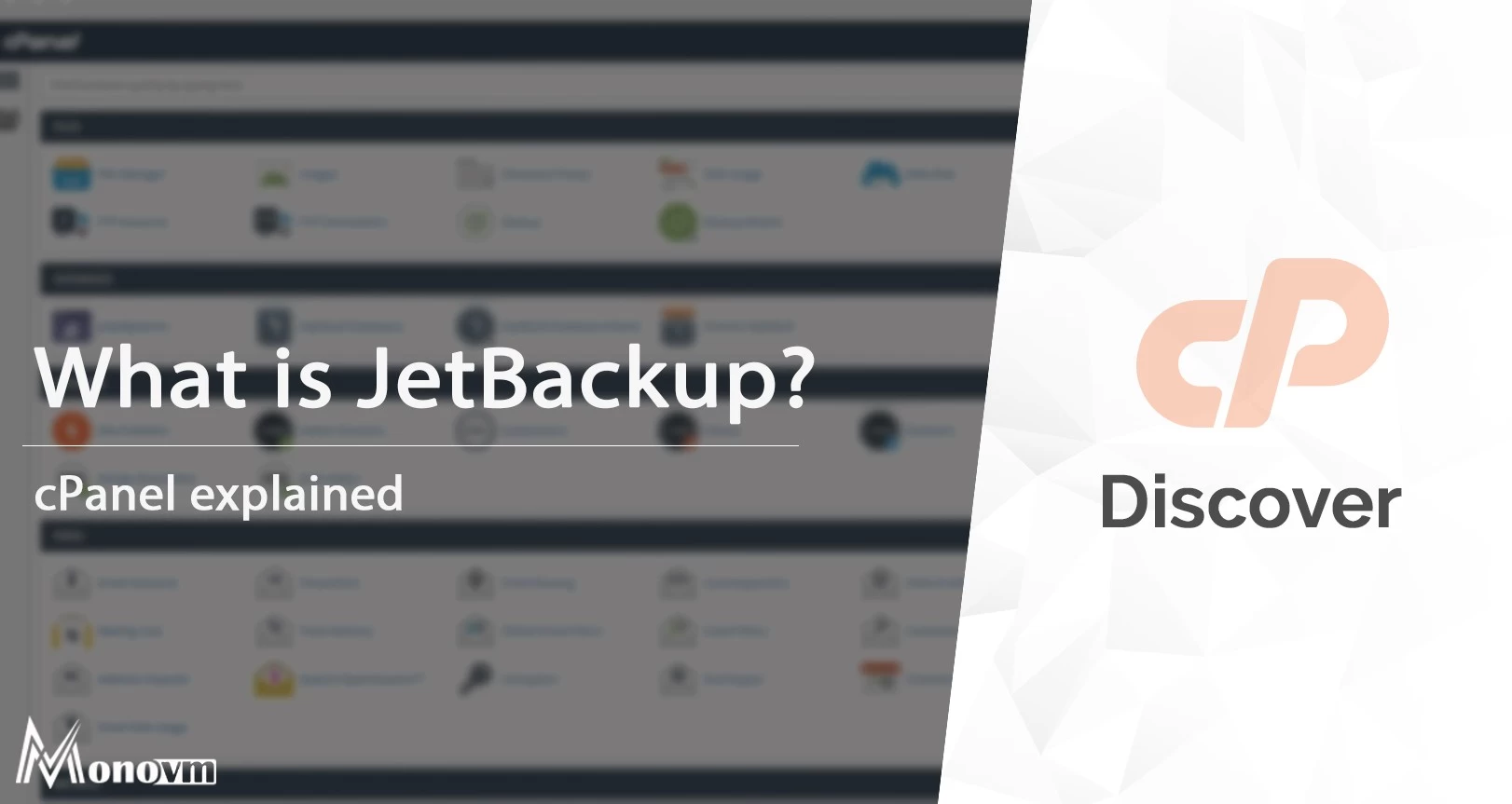List of content you will read in this article:
Data redundancy is one of the most important factors to consider when running a site that stores user data, especially if this data is semi-confidential. Even if you are just a regular computer user, you do not want to run into a situation where all your information and data are lost due to a failed hard drive or corrupted files. Today we will talk about how to avoid such scenarios by using backups, as well as introduce JetBackup.
What is a backup?
A backup is simply a copy of your important data stored somewhere on another device. This copy can be recovered if the original data is deleted or corrupted. While having the backup on a physical media such as an external drive or a USB thumb drive can guarantee no malicious persons will get their hands on it, they can be lost or destroyed in an accident. Setting up automatic backups is also quite complex when trying to do so using actual hardware. Thus, most opt for online backups.
There are many benefits to conducting your backups with the help of an online service and we will touch up more on that, however, first let us understand exactly why regular backups are such an important thing to perform when running a site or storing important information.
Why is it important to do regular backups?
No matter how well you take care of your computer or server, hardware failures occur, software bugs and errors corrupt data, and natural disasters can put even entire datacenters at risk. If you are storing data that is crucial to running a business or simply you must keep safe, backups are a must.
You do not want to be in a position where your server’s hard drive fails and all user data and business records are deleted permanently.
Why Use Online Backups?
As mentioned previously, there are many advantages in opting for online backup services instead of using actual physical media on-site. Here are some of them:
Improved Security
From the point of view of cybersecurity, most online backup services have dedicated teams of IT security experts that are constantly working on threat elimination and network security improvements. From a more physical standpoint, the chances of data loss happening due to natural causes such as fire or flooding to both your systems and the online backup servers are practically zero.
Complete Automation
Creating regular backups to physical storage media such as external hard drives and USB drives, although can be automated to a degree, still requires some effort and time from a human being, as well as software development for the automation script.
Online backups, on the other hand, only require initial configuration. After that, the process will happen completely autonomously with no requirement for human input or supervision.
Multiple Device Synchronization
An external hard drive or thumb drive can only be accessed from a single device at the same time. This although sufficient for most scenarios, sometimes might cause inconvenience. Well, this problem is solved when using an online backup system, as it can be accessed at any time, from anywhere.
Backing up multiple systems via traditional methods also requires manual connection of the external storage device to each system, thus wasting time and labor. Instead, an online system allows you to simultaneously take backups of many devices at the same time.
What is JetBackup?
JetBackup is a leading backup solution for cPanel which allows you to backup your cPanel account quickly and efficiently through cPanel Remote or local incremental backups. This includes full account backups, files, emails, DNS zone, cronjobs, databases, and SSL certificates. Jet Backup also allows you to create account filters to include/exclude accounts by disk space, resellers, cPanel packages, etc. All of these features are wrapped up in an easily navigatable user-friendly GUI.
MonoVM has recently switched to JetBackup for its primary backup solution.
What are some features that come with Jet Backup?
Multi-scheduling:
Multi-scheduling allows creating multiple schedules that can be assigned to the same backup job. Multiple schedules on the same backup jobs will be incremental to reduce space and resources. You can also create a schedule that runs once a specific backup job has been completed.
Account Filters:
Jet Backup allows you to set up unique filters to specify exactly which accounts you would like included or excluded in your backup jobs. There are eight different options to choose from and created filters are stored for future backup jobs.
GDPR Mode:
Jet Backup uses its own proprietary encryption algorithm when performing backups. The end users get to choose whether they want their encryption keys stored locally on the server or remotely in their own desired location. The end-user can also opt-in to have their backup data removed once their account is terminated.
Hybrid Backups:
You can select any combination of the parts of an account to include in the backup job. Generic or unnecessary files can be excluded from the backup. You can select specific directory paths to include in your backup job. You can also create an hourly database backup job along with normal full daily backups.
Custom Hooks:
Attach your own custom hook scripts to any major function inside JetBackup. Run your hook scripts before and/or after each JetBackup function. Run your hook scripts on any or all backup jobs inside JetBackup.
Conclusion
Backups are absolutely a necessity if you wish for any degree of data redundancy. We have mentioned the importance of regular backups and some suggestions on how often they should be performed. We also included a short list of advantages of using online backups in comparison to traditional physical media methods. Lastly, we introduced the online backup solution we personally use as well as recommend to others.
